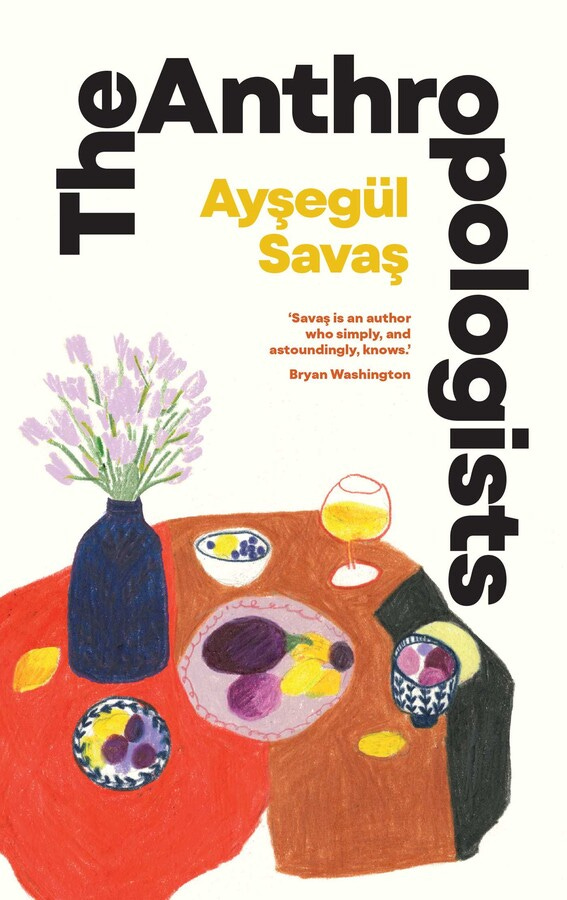my favorite book of 2024
#Scurf209: 'The Anthropologists' by Ayşegül Savaş is as enchanting as it is humbling. I wish for more novels like this.
This holiday week I’ve been reading many noteworthy, poignant and funny (still waiting for Elisa Gabbert’s!!!) 2024 reading lists by my favourite writers on Substack. I, too, read many books this year, and as I sat down to browse through my list of 22-25 odd titles, one of them jumped out of the queue, the rut, the circle. A delicious juicy, flavorful, and small-ly powerful novella, this book held a hold on me as I was set to embark on a similar trajectory in my life. The Anthropologists by Ayşegül Savaş at the word-, sentence-, paragraph-level was so powerful. Making me want to turn the page and also simultaneously mourn the fact that soon this book will be over. In the atomic year that 2024 was, each paragraph in The Anthropologists ceased its power over me, holding its own captive juice. The writing never bored me, as I’m sure it didn’t the writer.
These are broadly Asya’s meditations on the routine of the everyday in the lives of Manu and her in a nameless European city as a professor and documentary filmmaker, respectively. These fragments of Asya’s thoughts echo our general sense of detachment from the immediate world around, from her job, from herself. Manu is also reserved. But they are in love. With each other, their lives and the city. In a world plagued by wars, the climate crisis and a general sense of degradation all around, Savaş infuses the lives of Manu and Asya with a sense of otherworldy simplicity.
The Anthropologists follows a fragmentary style similar to that of several other successful novels like Olga Ravn’s The Employees, Jenny Offil’s Weather and Jhumpa Lahiri’s Whereabouts. In that, the writing becomes dependent on the reader; it is a collaborative act. While reading a lot many recent novels, I get a feeling of too-muchness. There’s too much backstory, weird detailing, information and just an excess of text. Sometimes we also know too much about the writer. With some of these new novels, the better part of the information is left up to the reader to parse through. And as a reader of all these books, I’ve felt immense joy and satisfaction in being able to hold these books like a genuinely curious conversation with the author.
In addition to Asya and Manu, there’s their close friend Ravi and their upstairs neighbour — an old lady who lives and manages life alone. Each time Many and Asya met with the old lady, I got a sense that they were at a precipice — that something big, momentous was around the corner. But it never does. And that was oddly fulfilling. We see her invite them over for meals, chat about her children with them, run into them in public places. Such peace, equanimity in the mundane.
Back in their rented house Manu and Asya, amid drifts and piles of laundry, utensils and other homely things, are also navigating the contours of their shared desire to purchase a house. This desire is shown with a remoteness that felt so urban, lived in and prosaic. Akin to how it is in the humdrum of a working couple’s daily life. It is not a desire that seems to be consuming one or both of them. A simple desire for something reachable. This again is something that I felt somewhat desirable. Not a consuming desire, a burning, raging thirst to be quenched, but a simple need, necessity that can be acquiesced to gradually.
The novel gets its grandness from the white space that Savaş supplies her book in abundance with. It is in what is left unsaid that I felt invited in, to bring in my thoughts and ideas to the book. To actively collaborate with Savaş and get to know these people and their unnamed city a little better. The grocery market they frequent, the parties they attend, the houses they visit, the bar they always drink at, the city square they end up spending a lot of time in. These spaces felt redolent of antiquity. Even though most of them remain unnamed, we can all, depending on where we’re from, find our own corner of the world in these places.
The Anthropologists is not Savaş trying to hold back, but rather to distill. It feels like a mature book in the way how Savaş leaves on the page only how much is essential and how much is the part that you plod through to get to the interesting bits. Leave some words behind, that’s what most writers try to do with most of their writing and Savaş has been successful in fulfilling that obligation to herself and her readers with The Anthropologists.
If you want to get a taste of the novel, read this short story by Savaş in the New Yorker — Future Selves — which is also the origin of the book. Last year around this time when the book cover started doing the rounds on social media I had been piqued, intrigued by the choice of photograph on the cover. I had felt immediately invited into the reading process from that point and I had wanted to like, even love this book whenever I get to read it. It doesn’t happen to often but when it does, it makes me absolutely beside myself with joy.
In the otiose hours of the flight from Calcutta to New Delhi in August this year when I found myself getting bored out of my skull, I’d pulled out the book and started reading it. Later as the plane began its descent to Delhi, a bird had hit our plane and there had been a measure of disturbance, panic among the passengers. The girl next to me, her face covered with a charcoal mask, started sending fervent goodbye texts to her flatmate in Delhi! In those moments of almost losing faith and balance, I had clutched tighter to the book, immersing myself further into the lives of Asya and Manu, cutting off from the world around while also imagining a similar future that lay ahead for my partner and me as I would join him in a similar European/Scandinavian set up a few weeks later. I wouldn’t shy away from saying that The Anthropologists found me at a capacious moment in time, helping me freeze those moments, put my experience to words while also feeling excited, on the edge about what comes next.
PS: follow Ayşegül Savaş on Insta, she’s a lot of fun!






